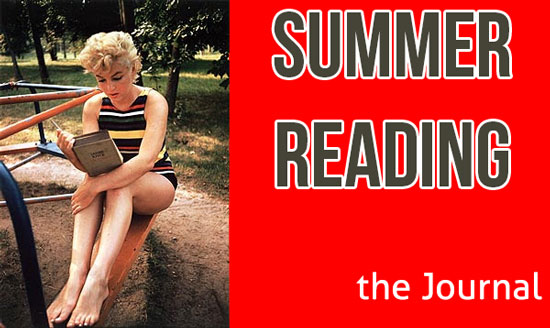
My summer began with a few happy weeks devouring the works of John Le Carre. I consumed them one after another, almost mindlessly, like potato chips: first Tailor Tinker Soldier Spy, then a couple of his early novels, A Murder of Quality and A Call For The Dead. It was fun and reassuring to see how he developed as a writer, from writing relatively simple mysteries like AMoQ and ACftD to bigger, more psychologically astute spy stuff like TTSS.
Alas, my Le Carre love ran aground on the rocky shoals of his gargantuan novel The Honourable Schoolboy, the second in his famed Karla trilogy. I would tell you what it was about, but I can’t remember. I can remember that it was 600 pages, George Smiley and his Russian rival Karla rarely appeared, and I read the last 300 pages deeply resenting every single word but determined to finish it anyway. Its bloat would not get me down! The overly long descriptions of some mundane aspect of life in a foreign city would not defeat me! The endless hinting at a terribly obvious conclusion (“I suspect the main character’s investment in this woman of dubious character is not going to work out well.”) would not stop my forward progress! I would see my way to the not surprising or interesting conclusion if it was the last thing I did! (Also, if I stopped, I would have sunk a considerable amount of energy into it with nothing, not even an entry in my Goodreads 2014 Reading Challenge, to show for it. My vanity could not allow such a thing.)
In late spring, I learned that my grandmother’s health had taken a serious turn for the worse. Once freed from the clutches of the academic calendar, I started spending weekends, and then whole weeks, at my childhood home in Kentucky. There wasn’t all that much to be done. But I wanted to be there, to do whatever I could.
Tending to someone who is dying is tedious but unpredictable. One day they respond well to medication, or to rest, and the next they don’t. One day they feel good enough to sit outside for a bit; the next they can’t even manage to look out the window. It’s terribly hard watching someone disappear by tiny increments, to see them lose almost everything they love about the life that won’t yet leave them. I spent a lot of afternoons chatting with my grandmother when she felt up for it, or flitting about the Internet in a distracted haze, but I also spent a lot of time reading.
Seeking refuge, I found it in nineteenth-century Russia. Earlier in the year, I had read this great New Yorker piece by Josh Rothman about Tolstoy and Anna Karenina’s mistaken reputation as a great love story. I found a pristine mass-market paperback of the novel languishing on a bookshelf in my mother’s house.
I started, mostly, as a lark: how far could I get? Tolstoy’s chapters are remarkably short, which made the going relatively easy. Only a few more pages, I told myself, and you can stop. And then, once that chapter was done, I’d see no reason not to read another. And then another. A few more chapters and I’d be at the end of a section, which had a nice finality to it. And so I made my way, learning about Anna and her unhappy marriage to Karenin, and about Levin and his rather grandiose ideas about farming. In my own work, I always wonder if I’m boring my hypothetical reader, if I’m sharing too much about something inconsequential. Tolstoy, it would seem, had no such qualms, and I was delighted to see him spend an entire section on Levin mowing his fields with the peasants, or on Vronksy visiting his horse in the stables. While the chapters flew by at brisk clip, the overall drift of the novel itself was languid and slow. Vronsky and Anna meet at a party, but dance around each other for another 100 pages. Kitty breaks Levin’s heart and they do not see each other again for what feels like an eternity.
What struck me most, however, was Tolstoy’s remarkable ability to sympathize with his villains (who are, without a doubt, villains) and his refusal to makes his heroes and heroines too perfect. Karenin, Anna’s passionless and calculating husband, is all that stands between her and happiness in her relationship with Vronksy. He’s unkind, and ungenerous, but also, somehow, wholly pitiable. Similarly, Levin, while honest and decent and full of good intentions, is also drably conservative and painfully self-pitying, especially when it comes to women. At the end, I was glad he had found some measure of happiness (however accidental), but was also glad to leave him to his work and his wife.
Scene that made me LOL: Kitty and Levin’s strange nineteenth-century version of text speak in the scene where they declare their mutual admiration by writing out sentences using only the first letter of each word. Those two really are MFEO.
